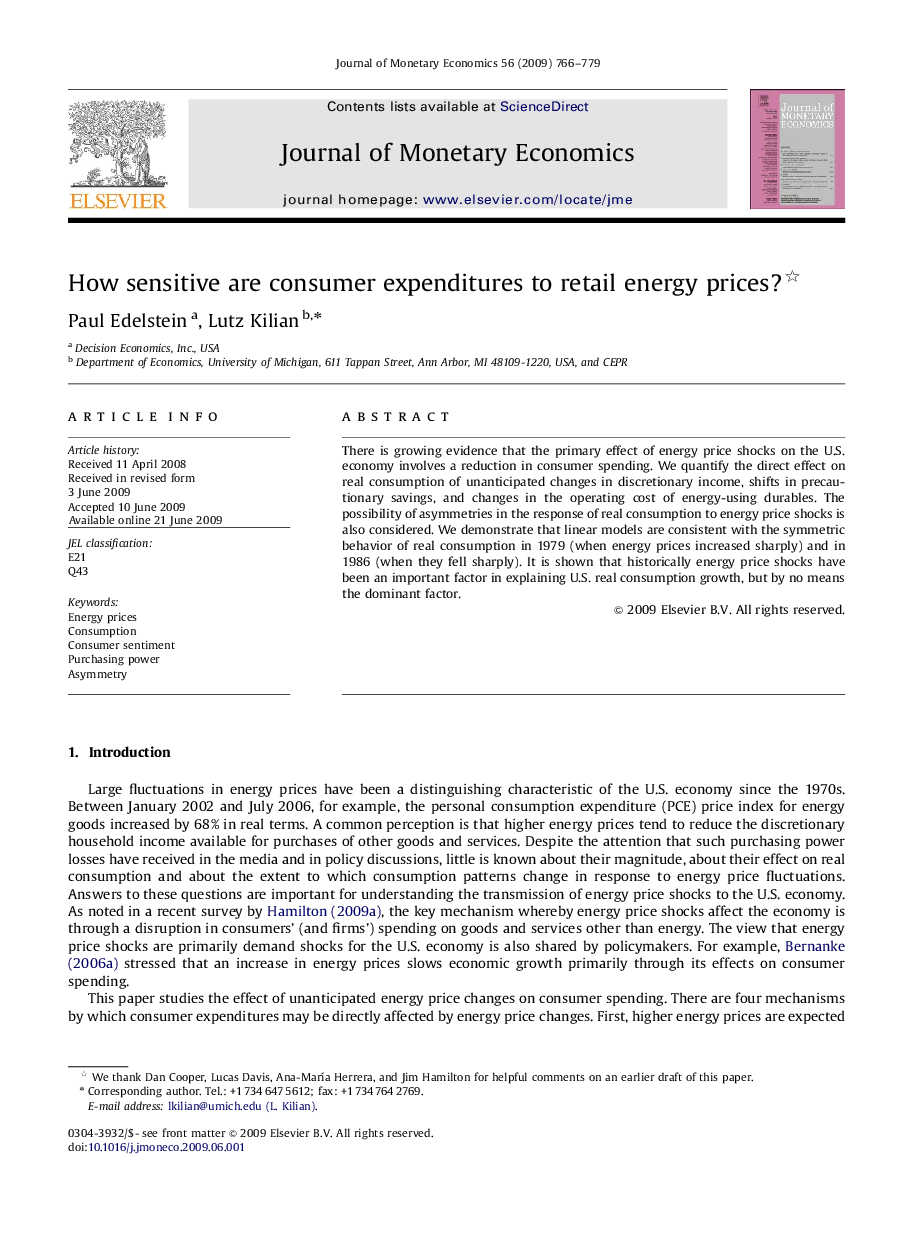| Article ID | Journal | Published Year | Pages | File Type |
|---|---|---|---|---|
| 967554 | Journal of Monetary Economics | 2009 | 14 Pages |
Abstract
There is growing evidence that the primary effect of energy price shocks on the U.S. economy involves a reduction in consumer spending. We quantify the direct effect on real consumption of unanticipated changes in discretionary income, shifts in precautionary savings, and changes in the operating cost of energy-using durables. The possibility of asymmetries in the response of real consumption to energy price shocks is also considered. We demonstrate that linear models are consistent with the symmetric behavior of real consumption in 1979 (when energy prices increased sharply) and in 1986 (when they fell sharply). It is shown that historically energy price shocks have been an important factor in explaining U.S. real consumption growth, but by no means the dominant factor.
Related Topics
Social Sciences and Humanities
Economics, Econometrics and Finance
Economics and Econometrics
Authors
Paul Edelstein, Lutz Kilian,
